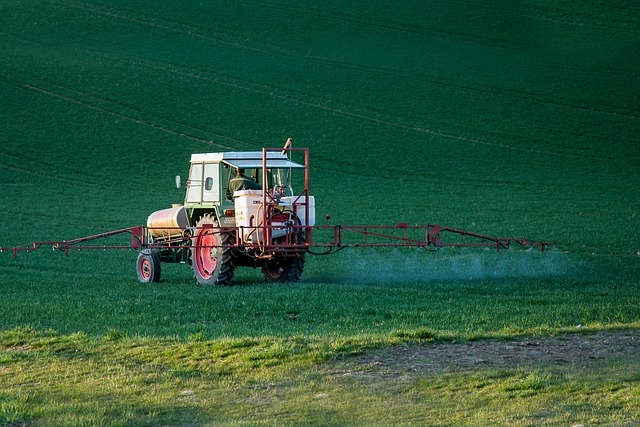
When it comes to the treatment of Japanese knotweed, there are a number of options to consider. The two most popular choices, however, are those of excavation and herbicide application.
Now, we know excavation may sound a little scary but we can assure you that your whole garden isn't going to be ripped to pieces. Regardless, the thought of having a digger on or around your property tearing away at the ground can be somewhat offputting, therefore herbicide application is often the go-to choice for many homeowners.
One of the many discussed treatments is glyphosate, an active ingredient in many herbicides. But does glyphosate kill Japnese knotweed off completely? Let's find out...
Glyphosate and knotweed
It's a fortunate thing that Japanese knotweed is susceptible to a variety of different herbicides, providing a much less-intrusive method of treatment and removal than excavation. Ideal for a lot of homeowners that wish to choose a simpler form of knotweed removal.
Many herbicides exist that are effective in the treatment of Japanese knotweed, such as picloram and triclopyr, however, these act a little different to that of glyphosate, which contains several properties that make it a more viable option for homeowners. These include:
- Being suitable for the use in or near water
- Being deactivated by micro-organisms that live in the soil
- Possessing low levels of toxicity
- Not leaching
What is glyphosate?
Glyphosate can be described as a translocated herbicide, meaning the plant carries it right down to its rhizome, or root system. Other types of herbicides such as contact herbicides may appear to kill the shoots and leaves of knotweed but unless they are carried down to the rhizome where the plant's roots can be killed, it will continue to regrow year after year.
When to apply glyphosate
During the winter months, Japanese knotweed survives as a rhizome under the ground. Before it reaches this stage, however, it needs to acquire the food stores in order to survive whilst it is dormant. This is done during the autumn when it uses the dying canes and leaves for sources of nutrition, carried right down into the rhizome. This presents the perfect time to apply glyphosate as translocation is assisted by this process. The only thing you need to be aware of is that there are plenty of green leaves on the plant when applying the herbicide so that it can absorb it effectively.
How is glyphosate applied?
The typical method of glyphosate application is via a spray which is sprayed onto the foliage of the plant. This is simple enough to perform but you need to be careful of drift that can be applied to non-target plants and lawns. If glyphosate does get applied to other plants or flowers, they may also die. It's also worth pointing out that if you intend to apply glyphosate in or near a stream, river or a pond that discharges to a watercourse, you should get in touch with your local environment agency as this could have implications on your surrounding water supply and wildlife.
So, in answer to the question 'does glyphosate kill Japanese knotweed', the answer is yes. It works to kill the plant directly at its roots rather than just the leaves and shoots which may make it appear to be dead. Don't want to apply glyphosate yourself? We can help! The team here at Taylor Total Weed Control can come out to your property and assess your knotweed infestation and apply the necessary measures needed to kill it off completely, which include glyphosate application. You can learn more below.
Japanese Knotweed Removal >
To get in touch with us regarding knotweed treatment, simply fill out and submit our contact form below - we'd love to hear from you!
